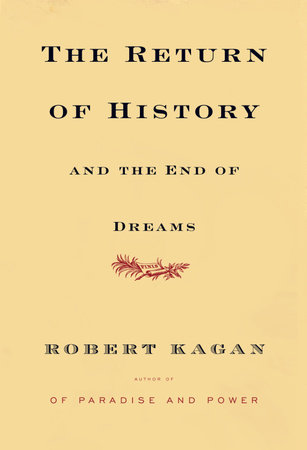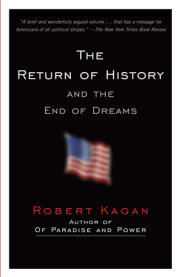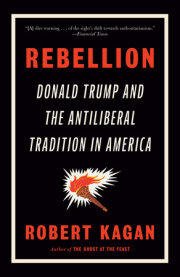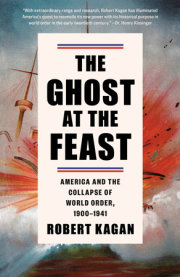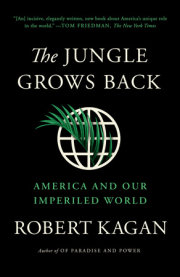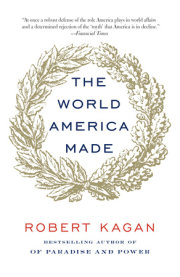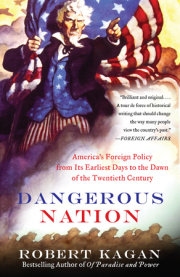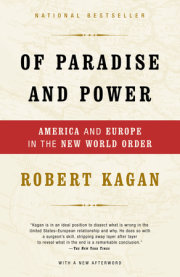In the early 1990s, the optimism was understandable and almost universal. The collapse of the communist empire and the apparent embrace of democracy by Russia seemed to augur a new era of global convergence. The great adversaries of the Cold War suddenly shared many common goals, including a desire for economic and political integration. Even after the political crackdown that began in Tiananmen Square in 1989 and disturbing signs of instability in Russia after 1993, most Americans and Europeans believed China and Russia were on a path toward liberalism. Boris Yeltsin's Russia seemed committed to the liberal model of political economy and closer integration with the West. The Chinese government'scommitment to economic opening, it was hoped, would inevitably produce a political opening, whether Chinese leaders wanted it or not.Such determinism was characteristic of post--Cold War thinking. In a globalized economy, most believed, nations had no choice but to liberalize, first economically, then politically, if they wanted to compete and survive. As national economies approached a certain level of per capita income, growing middle classes would demand legal and political power, which rulers would have to grant if they wanted their nations to prosper. Since democratic capitalism was the most successful model for developing societies, all societies would eventually choose that path. In the battle of ideas, liberalism had triumphed. As Francis Fukuyama famously put it, "At the end of history, there are no serious ideological competitors left to liberal democracy."The economic and ideological determinism of the early post--Cold War years produced two broad assumptions that shaped both policies and expectations. One was an abiding belief in the inevitability of human progress, the belief that history moves in only one direction-- a faith born in the Enlightenment, dashed by the brutality of the twentieth century, but given new lifefall of communism. The other was a prescription for patience and restraint. Rather than confront and challenge autocracies, it was better to enmesh them in the global economy, support the rule of law and the creation of stronger state institutions, and let the ineluctable forces of human progress work their magic.With the world converging around the shared principles of Enlightenment liberalism, the great task of the post--Cold War era was to build a more perfect international system of laws and institutions, fulfilling the prophecies of Enlightenment thought stretching back to the seventeenth and eighteenth centuries. A world of liberal governments would be a world without war, just as Kant had imagined. The free flow of both goods and ideas in the new globalized era would be an antidote to human conflict. As Montesquieu had argued, "The natural effect of commerce is to lead toward peace." This old Enlightenment dream seemed suddenly possible because, along with the apparent triumph of international liberalism, the geopolitical and strategic interests of the world's great powers also seemed to converge. In 1991, President George H.W. Bush spoke of a "new world order" in which "the nations of the world, East and West, North and South, can prosper and live in harmony," where "the rule of law supplants the rule of the jungle," where nations "recognize the shared responsibility for freedom and justice." It was "a world quite different from the one we've known."The world looked different primarily because the Soviet Union was different. No one would have suggested that history had ended if the communist Soviet Union had not so suddenly and dramatically died and been transformed after 1989. The transformation of Soviet and then Russian foreign policy was remarkable. The "peaceful influence of liberal ideas" completely reoriented Russian perspectives on the world--or so it seemed. Even in the last years of the Cold War, advocates of "new thinking" in Moscow called for convergence and the breakdown of barriers between East and West, a common embrace, asMikhail Gorbachev put it, of "universal values." Then, in the early Yeltsin years, under foreign minister Andrei Kozyrev, Russia appeared committed to entering postmodern Europe. Moscow no longer defined its interests in terms of territory and traditional spheres of interest but rather in terms of economic integration and political development. It renounced regional hegemony, withdrew troops from neighboring states, slashed defense budgets, sought alliance with the European powers and the United States, and in general shaped its foreign policies on the premise that its interests were the same as those ofthe West. Russia's "wish was simply to belong."The democratization of Russia, beginning even in the Gorbachev years, had led the country's leaders to redefine and recalculate Russia's national interests. Moscow could give up imperial control in Eastern Europe, could give up its role as a superpower, not because the strategic situation had changed--if anything, the United States was more menacing in 1985 than it had been in 1975--but because the regime in Moscow had changed. A democratizing Russia did not fear the United States or the enlargement of its alliance of democracies.If Russia could abandon traditional great power politics, so could the rest of the world. "The age of geopolitics has given way to an age of what might be called geoeconomics," Martin Walker wrote in 1996. "The new virility symbols are exports and productivity and growth rates and the great international encounters are the trade pacts of the economic superpowers." Competition among nations might continue, but it would be peaceful commercial competition. Nations that traded with one another would be less likely to fight one another.Increasingly commercial societies would be more liberal both at home and abroad. Their citizens would seek prosperity and comfort and abandon the atavistic passions, the struggles for honor and glory, and the tribal hatreds that had produced conflict throughout history.The ancient Greeks believed that embedded in human nature was something called
thumos, a spiritedness and ferocity in defense of clan, tribe, city, or state. In the Enlightenment view, however, commerce would tame and perhaps even eliminate
thumos in people and in nations. "Where there is commerce," Montesquieu wrote, "there are soft manners and morals." Human nature could be improved, with the right international structures, the right politics, and the right economic systems. Liberal democracy did not merely constrain natural human instincts for aggression and violence; Fukuyama argued it "fundamentally transformed the instincts themselves."The clash of traditional national interests was a thing of the past, therefore. The European Union, the political scientist Michael Mandelbaum speculated, was but "a foretaste of the way the world of the twenty-first century [would] be organized." The liberal internationalist scholar G. John Ikenberry described a post?Cold War world in which "democracy and markets flourished around the world, globalization was enshrined as a progressive historical force, and ideology, nationalism andwar were at a low ebb." It was the triumph of "the liberal vision of international order."For Americans, the fall of the Soviet Union seemed a heaven-sent chance to fulfill a long-held dream of global leadership--a leadership welcomed and even embraced by the world. Americans had always considered themselves the world's most important nation and its destined leader. "The cause of America is the cause of all mankind," Benjamin Franklin said at the time of the Revolution. The United States was the "locomotive at the head of mankind," Dean Acheson said at the dawn of the Cold War, with the rest of the world merely "the caboose." After the Cold War it was still "the indispensable nation," indispensable because it alone had the power and the understanding necessary to help bring the international community together in common cause. In the new world order, as Deputy Secretary of State Strobe Talbott put it, the United States would define "its strength--indeed, its very greatness--not in terms of its ability to achieve or maintain dominance over others, but in terms of its ability to work
with others in the interests of the international community as a whole."While Americans saw their self-image reaffirmed by the new world order, Europeans believed that the new international order would be modeled after the European Union. As scholar-diplomat Robert Cooper put it, Europe was leading the world into a postmodern age, in which traditional national interests and power politics would give way to international law, supranational institutions, and pooled sovereignty. The cultural, ethnic, and nationalist divisions that had plagued mankind, and Europe, would be dissolved by shared values and shared economic interests. The EU, like the United States, was expansive, but in a postmodern way. Cooper envisioned the enlarging union as a kind of voluntary empire. Past empires had imposed their laws and systems of government. But in the post--Cold War era, "no one is imposing anything." Nations were eager to join the EU's "cooperative empire . . . dedicated to liberty and democracy." A "voluntary movement of self-imposition [was] taking place."Even as these hopeful expectations arose, however, there were clouds on the horizon, signs of global divergence, stubborn traditions of culture, civilization, religion, and nationalism that resisted or cut against the common embrace of democratic liberalism and market capitalism. The core assumptions of the post--Cold War years collapsed almost as soon as they were formulated.
Copyright © 2008 by Robert Kagan. All rights reserved. No part of this excerpt may be reproduced or reprinted without permission in writing from the publisher.

